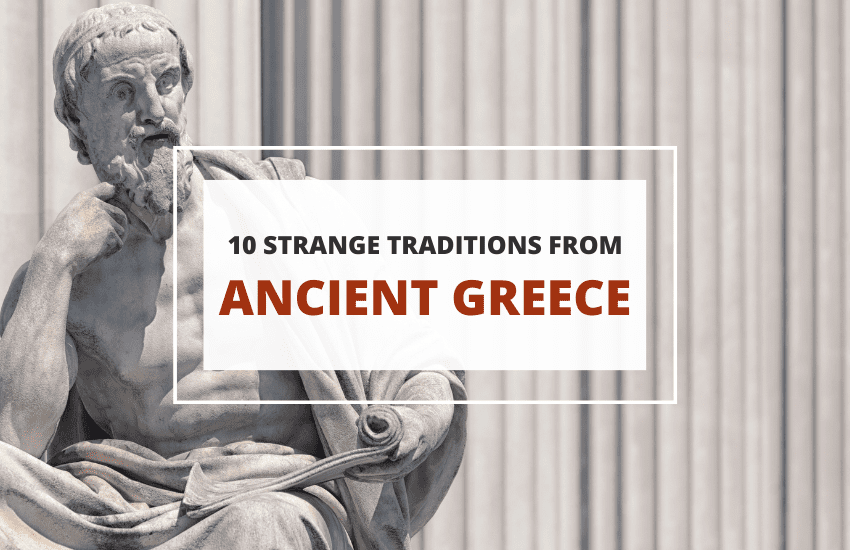
Table of Contents
The famous Greek historian Herodotus took a lot of trouble to describe the strange customs of the people of the known world in his Histories. He did so in length because he thought that knowing a peoples’ traditions was important to know their history.
What are some ancient Greek customs that we, today, would find odd or perhaps surprising? Here is a list of 10 of the most interesting traditions the ancient Greeks had.
10. The Athenian Assembly
It is a known fact that democracy was invented in Greece. But it worked very differently from our modern republics. People –and by people, I mean adult males who owned land in the area– gathered in an open-air space in order to debate the bills and legislation that would govern the city. It is calculated that as many as 6,000 citizens could take part of any assembly, and they could all cast their votes by hand, although later on a system of stones that could be counted individually was put in place.
It was also common practice for people to write the names of undesirable citizens in small fragments of pottery, called ostraka, to force the assembly to banish those people from the city. That is, they became ostracized.
However, not everything was freely decided by the citizens. Appointed officials known as strategoi dealt with matters relating to war, where their authority was undisputed.
9. Oracles
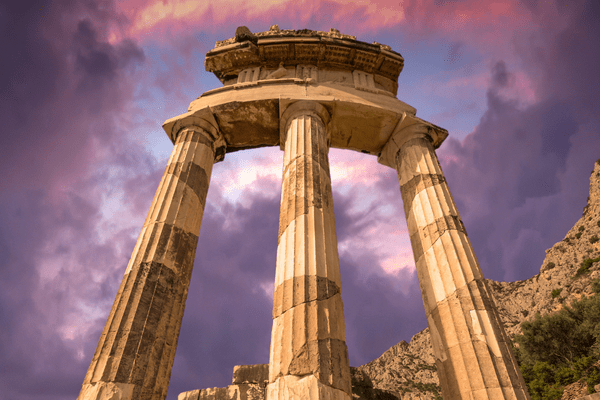
Would you trust a junkie to tell you what the future will bring? Well, ancient Greeks did, and would actually hike for days to reach the Temple of Apollo at Delphi in order for their fates to be divined.
The Temple was located in a hard-to-reach mountainous area. There visitors were greeted by the Pythia, or high priestess of Apollo. She would take one question per visitor, and then enter a cave, where toxic vapors emerged from cracks in the rock.
Inhaling these fumes gave the Pythia hallucinations, so when she came out of the cave she would speak to the visitors and her words were interpreted as highly accurate prophecies.
8. Name Days
Greeks did not terribly care for birthdays. Their names, however, were utterly important and most of the times defined what the person would be like. For example, Aristotle’s name was a compound of two words: aristos (best) and telos (end), which in the end proved to be a fitting name for someone who would become the best philosopher of his time.
Names were so important that every name had its own day in the calendar, so instead of birthdays, the Greeks celebrated “name days”. Which meant that during any given day, every person whose name coincided with that of the day would be celebrated.
7. Banquets
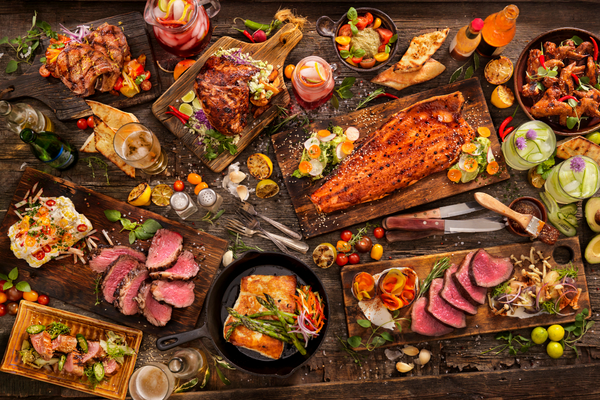
Symposium was the name of a curious and happy tradition among the Greek elites. Wealthy men would offer lengthy banquets (sometimes amounting to days at an end) which had two distinct, straightforward phases: first food, then drinks.
During the drinking phase, however, men would eat caloric snacks such as chestnuts, beans, and honey cakes, which tended to absorb some of the alcohol, thus allowing for a more prolonged drinking session. But these banquets were not only for fun. They had a deep religious meaning, as the libations were offered in honor of the great god Dionysus.
Banquets usually included tabletop games and shows by acrobats, dancers, and musicians. And of course, all the courses and drinks were served by slaves. Both in ancient Greece and in Rome, however heavy drinkers they were, wine was customarily watered down to make it less intense. Although not everyone could afford to host these symposia, it was a crucial staple of classical Greek sociability.
6. Sports Competitions
It is hardly a secret that the modern Olympic Games, held every four years in different countries, are a reprise of those that took place in ancient Greece. The truth is, however, that these modern competitions have little to do with the athletic festivals held in honor of Zeus at Olympia, and practically the only coincidence is in their frequency.
In Greece, contestants representing every city-state in the country flocked to the Sanctuary of Zeus to prove their strength or ability. Contests included athletic exhibitions, but also wrestling and an obscure Greek martial art known as pankration. The horse and chariot racing events were among the most popular in the Olympics.
There is a myth that city-states at war would call for a truce for the duration of the Olympic Games, only to resume conflicts after the end of the contests. But this is a legend, as there was nothing that could prevent the Greeks from waging war. Even so, there is a grain of truth in it: Pilgrims who were traveling the country in order to reach the Games at Olympia would not be attacked, for they believed they were under the protection of Zeus himself.
5. Theater Competitions

Staged cultural representations flourished in ancient Greece since the 8th century BCE. Athens quickly became the cultural hub of the country, and its theater festival, called the Dionysia, was by far the most popular.
All the greatest playwrights staged their plays in Athens, including Aeschylus, Aristophanes, Sophocles, and Euripides. Ancient Greek theaters were typically built on a flat surface at the foot of a hill, while the seats were carved directly into the rocky slope, so that everyone could perfectly see what happened on the stage.
During the annual spring theater festival, the Dionysia, the playwrights showed their work and competed to find out which one the public liked the most. They were required to submit three tragedies, a satyr play, and from the 5th century BCE onwards, also a comedy.
4. Nudity
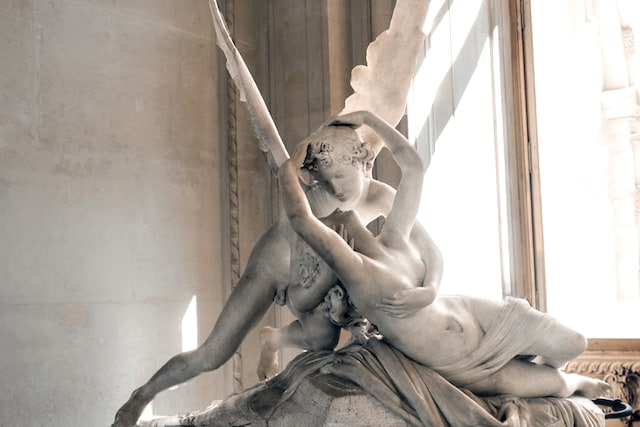
Greek people were really proud of their bodies. And judging from their statues, rightly so. Both men and women spent great efforts to keep themselves beautiful. Many beauty treatments were implemented in ancient Greece, including face masks made of olive oil, honey, and yogurt. Milk from domestic animals was hardly ever drank, but it was used extensively in body care. This was done with one objective in mind: to show one’s assets.
It was more than vanity. The idea was to appeal to the gods themselves, to prove worthiness in the face of the deities. Men usually practiced sports, including wrestling, in the nude. Women also engaged in athletic activities, wearing little to no garments. Nudity was considered quite normal in ancient Greece, and if anyone showed up to math class naked, nobody would frown upon it. Accounts also mention that, when dancing or celebrating ensued, people would lose their clothes very quickly in order to be more comfortable.
3. Food Taboos
Drinking milk was a taboo in ancient Greece. So was eating meat from domesticated animals, their meat solely intended for offerings to the gods. Even the animals that could be eaten, needed to be sacrificed to the Gods before they could be cooked by humans. And purifying rituals needed to be performed by any individual before being allowed to eat meat. Failing to do so meant angering the gods.
Another institution that relied heavily on taboos was the so-called syssitia. This was a mandatory meal that was organized by certain groups of people, be it religious, social, or military groups, but only men and boys could participate. Women were strictly barred from the syssitia, as it was considered a masculine obligation. Despite its obvious similarities with the symposium, the syssitia was not exclusive of the higher classes and it did not encourage excess.
2. Burials
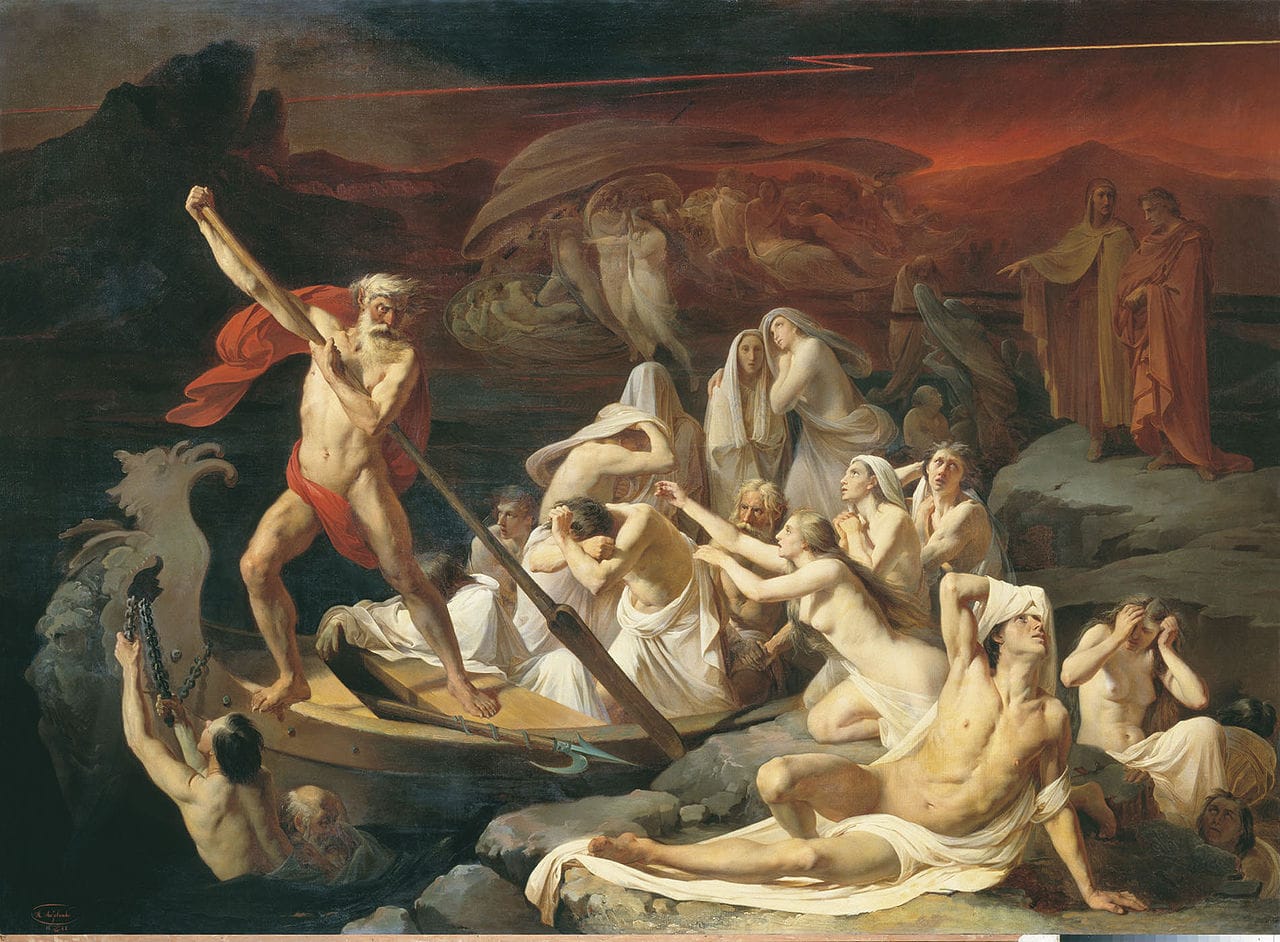
According to Greek mythology, before going into the underworld, or Hades, every deceased person needed to traverse a river called the Acheron. Luckily, there was a ferryman named Charon who eagerly transported the dead souls to the other side… for a small fee.
People feared that their beloved ones could not afford the trip, so Greek men and women were customarily buried with either a piece of gold under their tongues, or two coins covering their eyes. With that money, they would ensure their safe passage into the underworld.
1. Birth Control
Modern medicine owes its basics to the Greeks. They were the first ones to speculate with the existence of micro-organisms, millennia before van Leeuwenhoek and Louis Pasteur. However, not all their health prescriptions aged too well.
Soranus of Ephesus was a Greek physician who lived during the 2nd century AD. He was a disciple of Hippocrates, of whom he wrote a biography. But he is more known for a monumental four-volume treatise named Gynaecology, which apparently was very popular at its time. His prescription for women who wanted to avoid pregnancy was to hold their breath during coitus, and to do sit-ups and cough vigorously after the act.
This was considered a trustworthy birth control method by Greek women. Men were believed to have little responsibility for whether the woman became impregnated or not.
Wrapping Up
As with most ancient cultures, most of the customs that were perfectly normal in ancient Greece would be considered strange or frowned upon today, when not directly punished by law. The way they ate, (un)dressed, made decisions, and cared for their bodies would seem bizarre by today’s standards, but they stand as a humble reminder that there is no such thing as normality.








